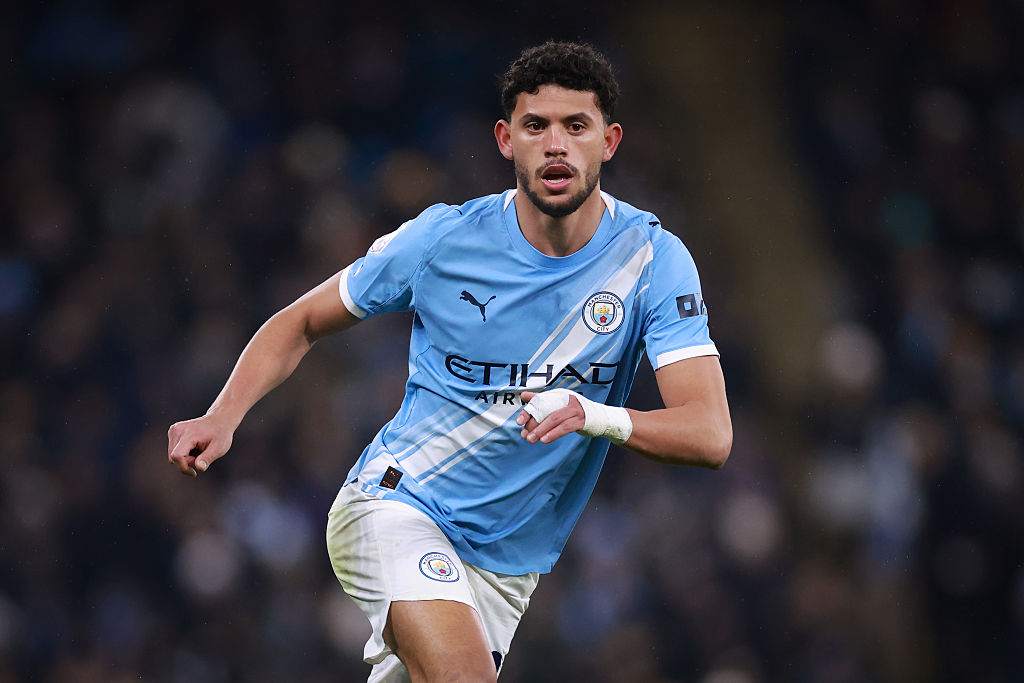Ranked! The 12 best international sides who DIDN’T win a major trophy
The unbelievable underachievers and unluckiest teams ever - who never touched a scrap of silverware for their efforts
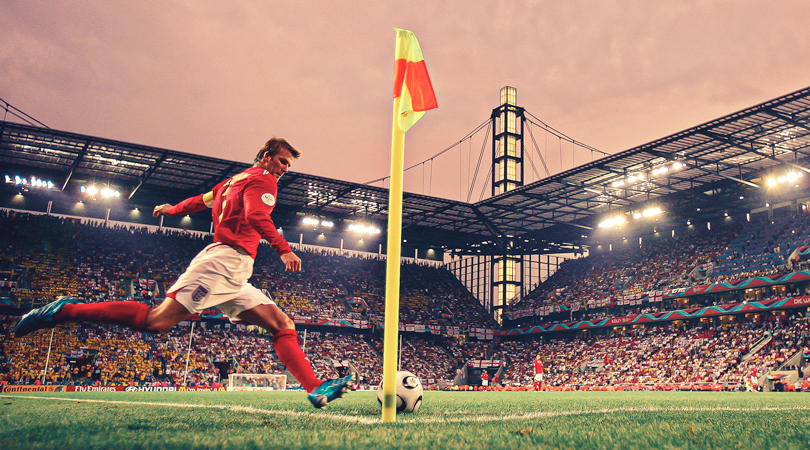
The beauty of international football is that the World Cup still feels such a big deal because it only happens once every four years. But if you don’t win that? Never mind, there’s a Euros, Copa America or Africa Cup of Nations to compete for in between. Sometimes two.
So while France in 1986 or Brazil in 1950 might have cases for being the best teams to have never won World Cups - they still achieved something. The Michel Platini-inspired Les Bleus cleared up at Euro 84, while the Selecao literally won the Copa America just a year before their Maracana meltdown in 1950, thrashing Paraguay 7-0.
The Germans have done the same thing on a number of occasions - compensating for a bad World Cup by lifting the Euros before or after - while England’s 1968-70 team can’t really claim to be one of the best to never win a big competition: it was essentially the same team from 1966. France’s team from 2014 to 2016 was outstanding but lived up to their expectations by winning a World Cup in 2018, while Ivory Coast from 2007 to 2014 should have done more, they did at least triumph at AFCON in 2015.
So who really ended up empty-handed? Who didn’t win anything and really should have done? And just to be clear, we’re not counting smaller competitions like football at the Olympics, Home Championships or regional titles - we mean the big ones.
12. England 1996-2000
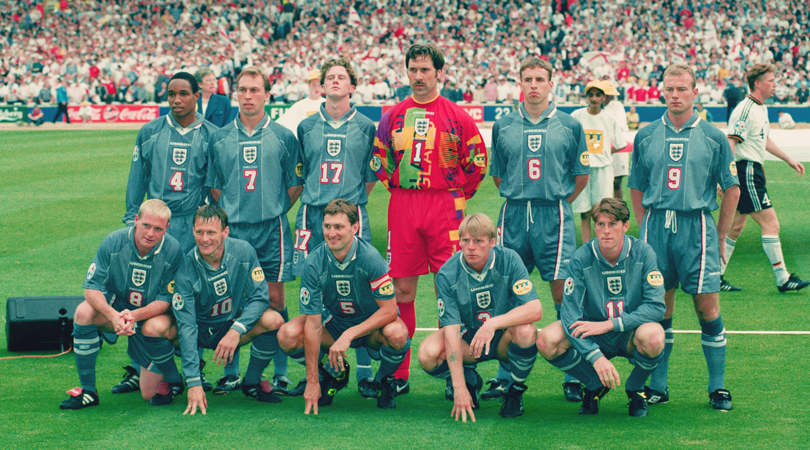
As the Premier League began to catch fire, England proved a lot of things on the international scene that they’d never proven before. When seas of flag-waving fans chanted the chorus of Three Lions, they believed that silverware was coming home - it wasn’t just a song about how England had hosting rights to Euro 96.
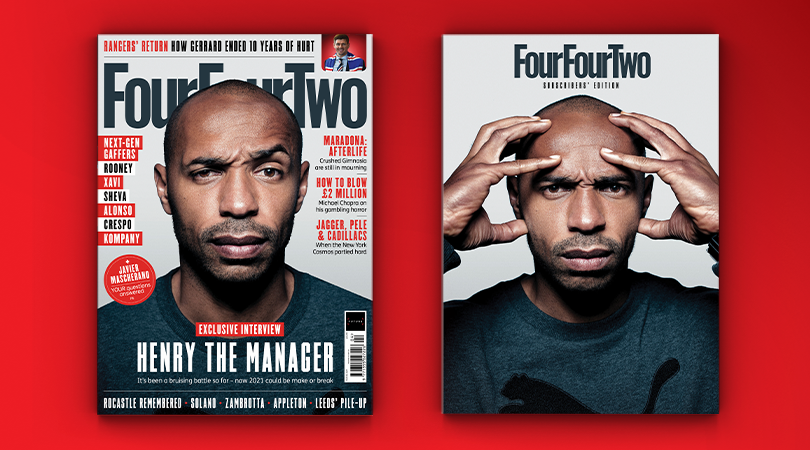
IN THE MAG Thierry Henry exclusive! Plus Rangers, Rocastle, Mascherano, Maradona, Chopra, Appleton and more
England pivoted between back threes and fours in the mid-90s, relying on experience from the likes of Stuart Pearce, Paul Ince and Tony Adams and bringing through the likes of Steve McManaman, Michael Owen and David Beckham. Euro 96 wasn’t to be; when France 98 came around, the Three Lions proved they could win ugly, come clutch in big moments and perhaps most impressively, hold the world back with defensive performances as titanic as you’d see from any side on the planet.
By Euro 2000, the team were fully in transition - though they really ought to have made it out of their group. England didn’t have anything to show from three tournaments close to home, under three managers, with a decent set of players at their disposal. We’d seen it all before.
The best features, fun and footballing quizzes, straight to your inbox every week.
11. Portugal 1964-68
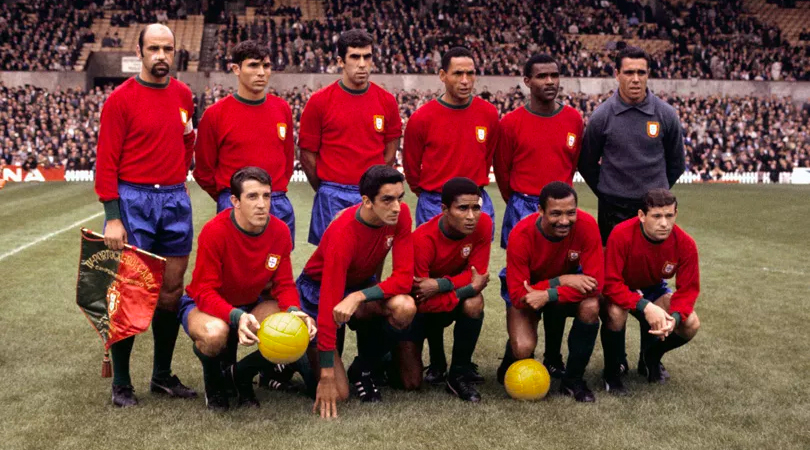
A Russian linesman’s vision isn’t the only point of contention when it comes to England’s only World Cup win. There was a lot of bemusement at the decision to force Portugal to London down from Liverpool for the semi-final, just because it was against the hosts.
Portugal were the outstanding side in the 1966 World Cup. Eusebio picked up the Golden Boot with nine goals across the tournament, including four against North Korea in the knockouts, as the Portuguese bulldozed their way through the competition, beating holders Brazil, former superpower Hungary and Bulgaria along the way.
England eventually knocked out Os Navegadores, who finished third in the competition with a consolation win over the other beaten semi-finalists, Soviet Union. Portugal didn’t qualify for the European Championship either side of this World Cup, meaning that Eusebio never did get the international trophy he deserved.
10. Ghana 2008-12
Ghana were ranked 14 in the world in 2008. They won every game to qualify for the World Cup in 2010, before getting out of their group and winning their first knockout match against the United States after extra time. Then came infamy against them, in the shape of Luis Suarez’s deliberate handball, Asamoah Gyan’s missed penalty and the team we all thought would become the first African side to ever reach a World Cup semi-final, falling at the quarters.
The episode, unfortunately, lives longer in the memory than how good that Ghanian group actually was. They were beautifully fluid in attack and intelligent in the way they sat back only for the central defenders to press forward and win long balls. Coach Milovan Rajevac got drive and dynamism from an inexperienced squad who were missing their best player, Michael Essien, after he suffered a knee injury at the Africa Cup of Nations earlier that year. It’s easy to forget that, too.
When Ghana were beaten in the 2010 AFCON final by a single late Egypt goal, it certainly didn’t seem like the end of a road: but when the surprise package of Zambia knocked them out of the AFCON semi-final in 2012, it called time on a great era for the side. Who knows what they could have achieved, had luck been on their side?
9. Argentina 2014-16
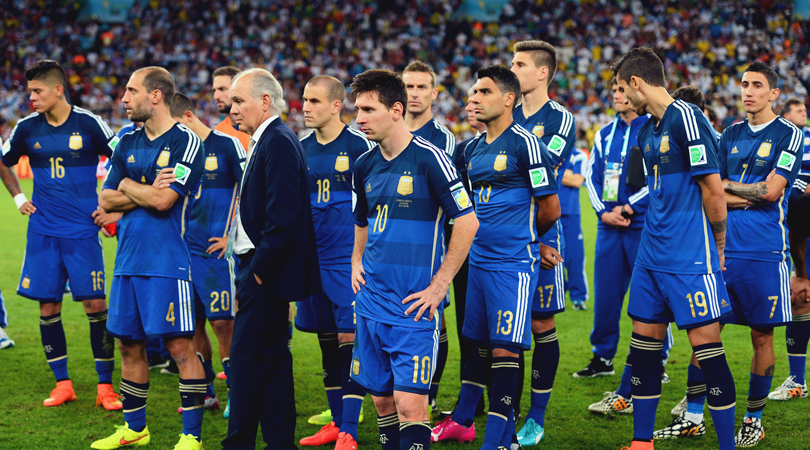
Well, if Eusebio was deserving of a medal for his ability, then what about Messi? There seems to be this myth that the little genius underwhelmed at the 2014 World Cup, too - not bad considering he won the Best Player award and scored five goals.
Some would argue that the Brazil-based spectacle came at Lionel Messi’s peak; he dragged his country to a showdown with Germany in the final and looking across at some of the other faces there - Di Maria, Mascherano, Higuain, Aguero but to name a few - perhaps he should have had a little more help from his friends… especially when Gonzalo Higuain missed a gilt-edged chance in the first half to give Argentina the lead in the final.
2015 and ‘16, however, gave La Albiceleste the chance at redemption, with two consecutive Copa America tournaments. Messi racked up seven assists and six goals across the two editions, the likes of Ever Banega and Javier Pastore featuring more in the spotlight. But Argentina went and lost on penalties, twice, to Chile, for their first two Copa titles in a century. Messi could only take them so far.
8. Brazil 1982-83
There are some that claim the early ‘80s vintage to be the finest iteration of Brazilian talent ever. Led by the legendary Socrates in midfield, fronted by all-time Brazilian league top scorer Roberto Dinamite (yes, that was really his name) and coached by mad scientist Tele Santana, the Brazilians went all-out attack at all times, inspiring, influencing and capturing hearts for their desire to entertain.
BRAZIL Pain, poverty, bribery and glory: the extraordinary rise of Roberto Firmino
Of course, it was throwing such caution to the wind that scuppered the bananas Brazilians. Needing only to draw against Italy to go through the second round of groups, Brazil lost 3-2 to a wilier and wiser opponent. A year later - without Santana in charge - they’d reach a Copa America final, only to be beaten over two legs by Uruguay.
This team has been a stick to beat beautiful football with for almost 40 years. What good is entertainment if it doesn’t win you a trophy? Nevertheless, Santana is still remembered in folklore as “the last romantic of Brazilian football”. This side played the game with verve and freedom: they were great for entirely different reasons to so many others.
7. Portugal 2000-06
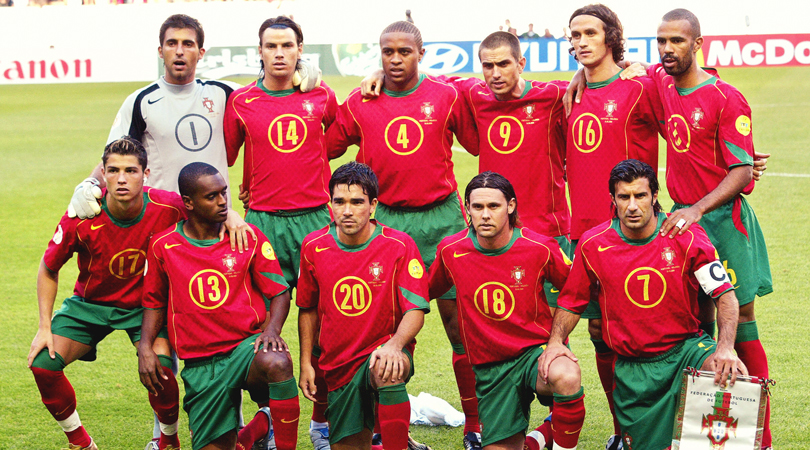
It was actually the Portuguese media who coined the term, “golden generation”, with Luis Figo the principal golden boy. After consecutive FIFA Youth Championship wins in 1989 and 1991, the nation expected. Figo, Nuno Gomes, Rui Costa, Joao Pinto Fernando Couto, Ricardo Carvalho, Deco and a young Cristiano Ronaldo all blossomed in the early 21st century. The nation looked set to destroy a long drought on the international stage.
Portugal took the best side on Earth, France, to extra-time in the Euro 2000 semi-finals, eventually losing to a Zinedine Zidane golden goal. In 2006, Zizou would again be the deciding factor in the semi-finals in Germany, Les Bleus triumphing 1-0. What happened in between, however, still leaves some scratching their heads.
In 2002, Portugal suffered a strange meltdown to lose twice in the group stages and fail to advance, citing two harsh red cards against South Korea as an excuse. Nevertheless, Korea were in front of their own fans - something that the Selecao should have learned from two years later. How on Earth did Portugal lose Euro 2004 on home soil to Greece, of all teams?
This was the same year that Jose Mourinho had won the Champions League with Porto; the nation were at a peak, with a wealth of depth and this was the opportune moment. Zero out of four for the golden generation was quite the underachievement - but 2004 took the biscuit.
6. Argentina 2004-07
Midway through the 2006 World Cup, BBC Sport pundit Alan Hansen revealed his team of the tournament so far: it consisted entirely of Argentina players. In truth, Big Al wasn’t being silly, either. The team had breezed through their group of death, drawing with the Netherlands, beating Ivory Coast and spanking Serbia and Montenegro 6-0 - where Esteban Cambiasso finished the famed 25-pass goal.
This tournament was the coming of age for Tevez, Mascherano, Cambiasso and Crespo. Juan Roman Riquelme was puppeteering in midfield, Javier Zanetti and Roberto Ayala were colossuses for La Albiceleste; this was only two years on from the Copa America penalty shootout loss to Brazil, yet this squad had good profiles across the pitch and were playing with the rhythm of a club side. Of course, it helped to have an 18-year-old Lionel Messi to bring on, too - he netted in the Serbian demolition and had one ruled out in the second round.
Argentina’s tournament ended in shootout disappointment again, followed by a punch-up with the German opposition. Coach Jose Pekerman was roundly criticised for leaving Messi on the bench against the hosts, who let’s face it, were nowhere near as strong as the Argentinians.
By the time the next Copa America rolled around, legendary manager Alfio Basile was in charge. Essentially the same side, a year older, lost 3-0 in the final to a woeful Brazilian team bereft of Ronaldo or Ronaldinho, who instead put faith in fresher faces, such as Robinho, Julio Baptista and Elano. That was it, lads. That was the chance.
5. Italy 1990-94
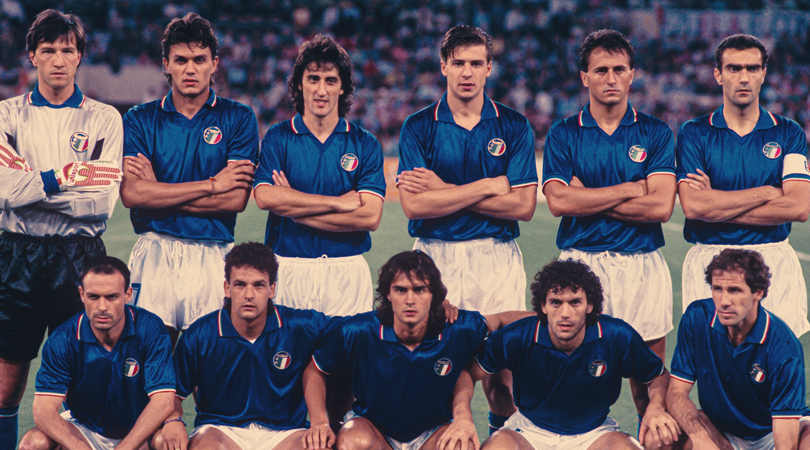
Pick an era, any era, between 1982 and 2006. There’s a strong chance that Italy would have been among the three or four favourites for any major tournament in that time, and yet, they won absolutely nothing. That’s astounding - especially considering the Baggios, Viallis, Zolas, Maldinis, Baresis, Del Pierros, Tottis, Vieris and everyone else that they’ve produced during that time.
But for our money, 1990 to 1994 is where the Azzurri really should have won something. Arrigo Sacchi was reinventing the club game in Serie A with a breathtaking vision and invincible teams, Italy had the best defenders in the world and there was flair a-plenty in the forwards. Not only that but the 1990 World Cup was at home, the trophy destined for Italian hands - only for Diego Maradona to nail the winning penalty in his adopted home of Naples against the hosts in the last four. If only they hadn’t have sat back after taking the lead.
A single defeat in qualification to Norway was the difference in Italy not making Euro 92. When the World Cup came around in ‘94, however, the bulk of the squad was built from AC Milan’s outstanding Champions League winners with Sacchi in charge. Italy somehow lost their first game to the Republic of Ireland and after Gianluca Pagliuca handled outside the area against Norway (again), Sacchi took off a cheesed off Roberto Baggio to save the game.
The risk paid off, as the Azzurri won 1-0, snuck through the groups to beat Nigeria, Spain and then an in-form Bulgaria: they came good eventually. In the end though, you’ll only remember the comical penalty miss from Baggio that sealed Brazil’s fourth world title. It marked a miserable midpoint in one of the most disastrous droughts in international history.
4. England 2001-07
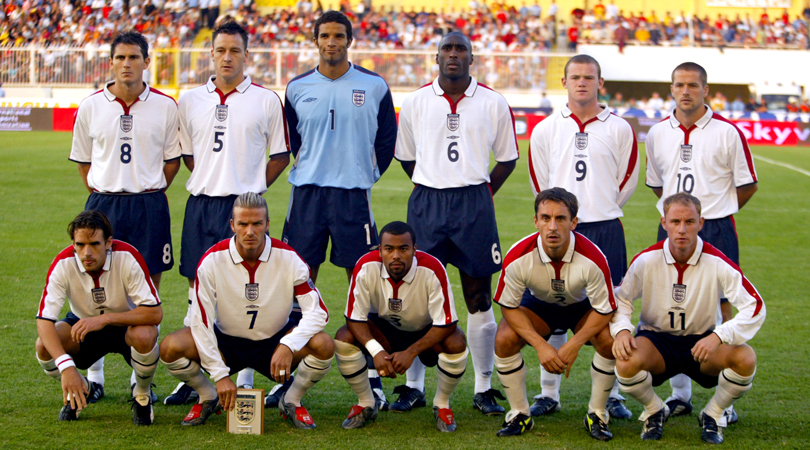
It started with a 5-1 drubbing of the Germans in their own garden; it ended with a sodden Steve McClaren watching in anguish at a Scott Carson howler. It remains the most impressive crop of footballers that this country had ever produced, with not so much as a semi-final to show for it.
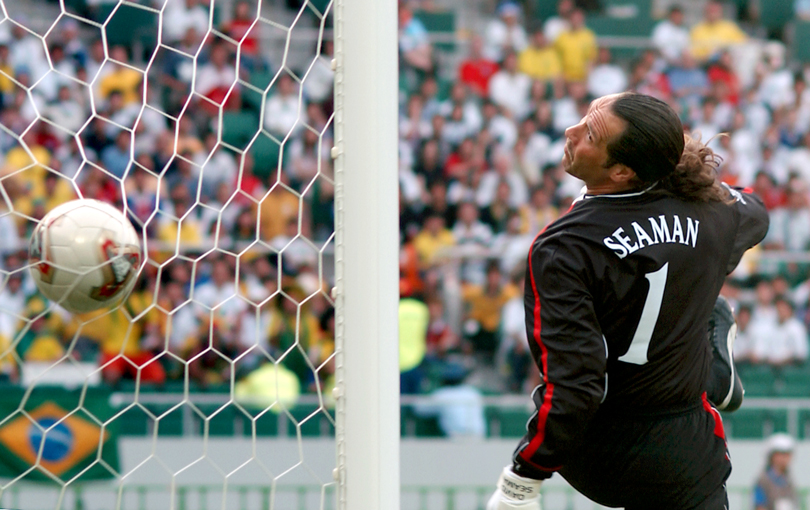
CHRIS FLANAGAN What happened to England's "Golden Generation"? How the country's most talented squad never came good
The Brazilians will tell you that England were a difficult prospect in 2002 - and they could well have been sincere about that, despite the youth, injuries and inexperience at that World Cup. Over two more penalty shootouts against Portuguese-speaking opposition, though, England should have done better - despite Wayne Rooney missing the finales to both matches.
Portugal were in their own golden generation, granted, but as we all found out, they clearly weren’t unbeatable. England had Champions League winners past and present, leaders and titans across the pitch; for so long, the conversation was about their lack of a left-footed left-winger and yet we’ve seen teams without so much as a striker sweep up at tournaments since.
The players were there: it was the tactical side that let down the Three Lions. And that’s the total opposite for most teams. It remains the greatest shot at ending all those years of hurt.
3. Belgium 2016-present
Thibaut Courtois, Toby Alderweireld, Jan Vertonghen, Vincent Kompany, Axel Witsel, Radja Nainggolan, Mousa Dembele, Eden Hazard, Dries Mertens, Kevin De Bruyne, Romelu Lukaku, Yannick Carrasco… need we continue?
The Belgian dream isn’t over by any stretch; they’re the envy of much of the continent for many with the players that they currently have. But for many of Marc Wilmots’ Euro 2016 squad, that chance to win something with the Red Devils is all but over; Kompany, Nainggolan and Dembele have all ridden off into sunsets, while many of that fated crop will only get back on the horse one final time this summer.
Ultimately, it may well be thanks to the British that they never reached their potential. After all, it was the Welsh that rose to slay a much superior Belgium team on paper in 2016, before the English took a loss to Belgium in the 2018 World Cup group stage, in order to give themselves the easier run to a semi-final. On the first occasion, poor tactics seemed to hamper the Belgians; on the second, they beat Brazil and were undone by a generational French side in Saint Petersburg.
If they’d have beaten Wales in 2016, they’d have played a weak-looking Portugal in a semi-final before France in Paris. If they’d have lost to England in 2018, they’d have probably faced the same French side in a World Cup final. Who’s to say they wouldn’t have won at least one of those games? Anything can happen in a final - perhaps we’d be looking at that France side as one of the greatest to never win a tournament instead.
2. Hungary 1953-56
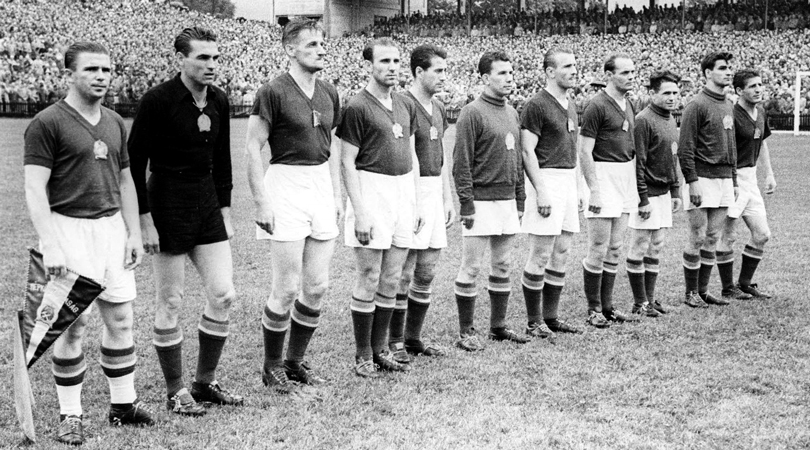
OK, so Hungary won Olympic gold in 1952, back when it was a more prestigious event than it is now. But that’s not what the Mighty Magyars are remembered for. Not really.
In 1953, a Ferenc Puskas-led Hungarian team became the first team outside of the British Isles and Ireland to beat England, in what was dubbed ‘The Match of the Century’, prompting an entire re-think of English football. A year months later, they proved it wasn’t a fluke, thrashing the Three Lions 7-1 in Budapest. When the 1954 World Cup came began, it was Hungary’s to lose - and sure enough, they triumphed 4-2 over holders Brazil before inflicting Uruguay’s first-ever World Cup defeat without Puskas.
The final was against West Germany, who Hungary had beaten 8-3 earlier in the tournament. Yet the Germans triumphed in what was labelled ‘The Miracle of Bern’, thanks to an outrageous defensive performance, a couple of controversial refereeing decisions and sheer luck. It became a Sliding Doors moments for two nations - not least because Hungary would never again reach the World Cup final, while this was the first of four German titles.
While the win had given West Germany a sense of much-needed pride that they hadn’t felt since before the war, demonstrations erupted in Budapest, directed not just at the Mighty Magyars but the communist-authoritarian regime. General secretary Matyas Rakosi, who had used the Golden Team's prestige to boost his own reputation, came under staunch criticism.
Hungary would beat superpowers old and new in Scotland and Soviet Union, going unbeaten in 19 games before the Hungarian revolution tore apart the team. Era-defining stars like Sandor Kocsis, Zoltan Czibor and Puskas moved to play in Spain and avoid conflict. The greatest team the world had witnessed were beaten by time and politics - and just a single on-field opponent.
1. Netherlands 1974-78
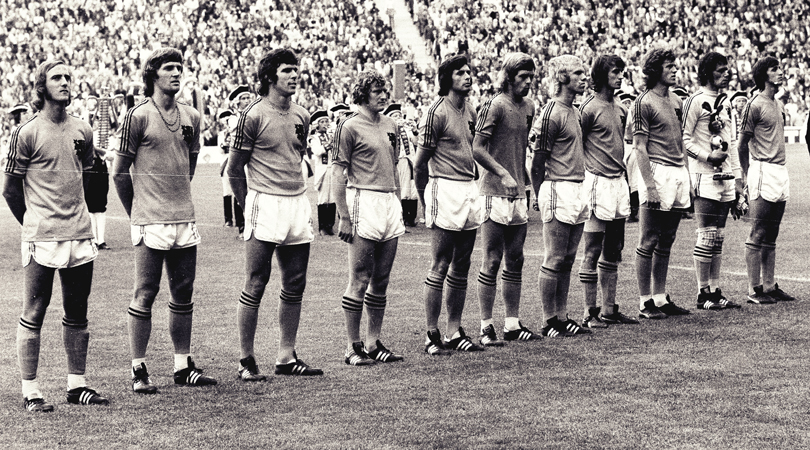
The Netherlands only qualified for their first World Cup on goal difference when a perfectly good Belgium goal was ruled out for offside against them. Yet the Oranje took the lead in the final the following summer, with a Johan Cruyff penalty kick before West Germany had so much as kicked the ball. They were perhaps the most beguiling, bewitching team to ever take to grass - but when they capitulated, they made sure they did it in front of watching eyes.
A four-year run of Dutch European Cup winners had just ended, first with Feyenoord in ‘69 before Ajax weaved pass-and-move football to three straight continental titles. The architect, Rinus Michels, was instilled as head coach just 12 weeks before the 1974 tournament in West Germany, tasked with implementing his tactical blueprint at international level with a squad mostly made up of Ajax and Feyenoord stars. Cruyff, now at Barcelona, was the Lennon-esque icon around which the carousel football pivoted.
JOHAN CRUYFF Simplicity matters: how did the Cruyff Turn become so iconic?
Holland were foiled by good, old-fashioned defensive brilliance and their own complacency, in the end, reverting to conventional long balls by the end of the final. In the wake of defeat, Cruyff declared the Dutch legacy to be deeper than winning: and so began the idea of the Netherlands producing beautiful losers. At Euro 76, the Oranje were beaten in extra-time in a semi; in ‘78, they’d again reach the World Cup final only to be swept aside by the hosts again - this time Cruyff-less and against Argentina.
The Netherlands had beaten Brazil in the ‘74 semi-final to snatch a baton from them. They were now the keepers of the beautiful game. They’ve long since lost it - perhaps, symbolically, the official pass-over came in 2010 against the Spanish, when tiki-taka trounced a much dirtier Dutch team.
But that’s all that the Oranje ever had, unfortunately. A title, and not one that comes with silverware. They’re forever labelled the best team to have never won the World Cup. In fact, they won nothing at all.
Subscribe to FourFourTwo today and get your first five issues for just £5 for a limited time only - all the features, exclusive interviews, long reads and quizzes - for a cheaper price!
NOW READ
RICHARD JOLLY Harry Kane could claim so much more than trophies if he stays with Spurs
CHRIS FLANAGAN Barrowcelona 2.0: How Bolton Wanderers have become English football’s form team
JUDE BELLINGHAM EXCLUSIVE "It was never a case of this club over this club. For me, it was always Borussia Dortmund"

Mark White has been at on FourFourTwo since joining in January 2020, first as a staff writer before becoming content editor in 2023. An encyclopedia of football shirts and boots knowledge – both past and present – Mark has also represented FFT at both FA Cup and League Cup finals (though didn't receive a winners' medal on either occasion) and has written pieces for the mag ranging on subjects from Bobby Robson's season at Barcelona to Robinho's career. He has written cover features for the mag on Mikel Arteta and Martin Odegaard, and is assisted by his cat, Rosie, who has interned for the brand since lockdown.
 Join The Club
Join The Club





